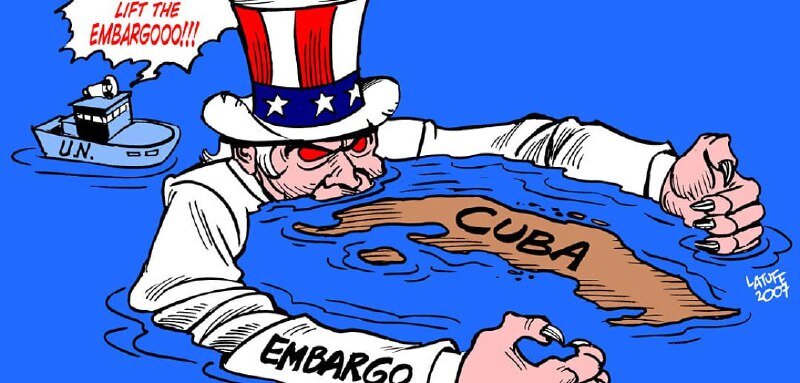Who wins the duel of embargo and resistance? The U.S or Cuba!

On February 7, 1962, President John F. Kennedy imposed the U.S. embargo on Cuba.
It banned all trade and financial transactions with the island unless licensed by the Treasury Department subject to detailed regulations contained today in the 56-page Cuban Assets Control Regulations. This embargo built on the precedent set by President Eisenhower who cut off U.S. exports to the island, except for food and medicine. President Johnson then expanded the embargo’s reach through a multilateral policy of economic denial in 1964, which severely inhibited Cuba’s efforts to foster economic relations with other countries.
Despite continued efforts by the United States to cut off the island from the rest of the world, most of Europe and Latin America reinstated their relations with Cuba after close to a decade. President Reagan was the first to add Cuba to the State Sponsor of Terrorism List (SSOT), and President George H.W. Bush signed the Cuban Democracy Act to once again prohibit Cuba’s ability to buy products from U.S. companies operating in third countries. Further cementing the permanence of the embargo, the 1996 Helms-Burton Act made it virtually impossible for the president to undo the set of sanctions without congressional approval.
On December 17, 2014, President Obama broke the mold in the U.S. approach to Cuba policy. His administration lifted restrictions for Cuban-Americans to travel and to send family and donative remittances, reestablished the U.S. Embassy in Havana, removed Cuba from the SSOT list, expanded access to the internet, and licensed a range of trade opportunities for U.S. companies.
The next two years saw an unprecedented boom in private-sector activities in Cuba, significant openings for civil society discourse, and other reforms by the Cuban government.
In 2017, the Trump administration undid all the progress Obama achieved and more. It swiftly imposed new restrictions prohibiting U.S. companies from doing business with certain Cuban companies managed by the armed forces and prohibited U.S. visitors from staying in hotels operated by those companies. It eliminated people-to-people educational travel, placed strict caps on family remittances, and made it impossible to send remittances by wire service.
Today, U.S. policy towards Cuba is at a standstill. Despite multiple campaign promises during the 2020 election campaign, the Biden administration has not advanced engagement policies with the island. It has begun restaffing the U.S.
Who won the duel of embargo and resistance?
With some reasons that have been mentioned, we can understand that the U.S failed this duel:
1. The United States should end the Cuba embargo because its 50-year policy has failed to achieve its goals, and Cuba does not pose a threat to the United States.
2. The embargo harms the US economy.
3. The embargo harms the people of Cuba, not the government as intended.
4. Promoting democracy by prohibiting Americans from traveling to Cuba is hypocritical. Most Americans want improved diplomatic ties and open travel and trade policies with Cuba.
5. Cuban-Americans and most of the world opposes the embargo, and maintain it is detrimental to the reputation of the United States among the international community.
6. Free trade, not the isolation of an embargo, can promote democracy in Cuba. And, lifting the embargo would put pressure on Cuba to address problems that it had previously blamed on US sanctions.
